news
Breaking: Tinubu announced as Man Of The Year as he speaks on the economic programme of his administration, Says Onanuga
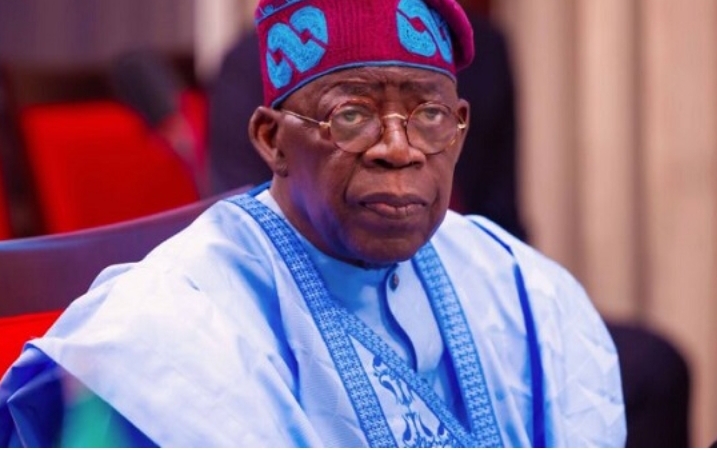
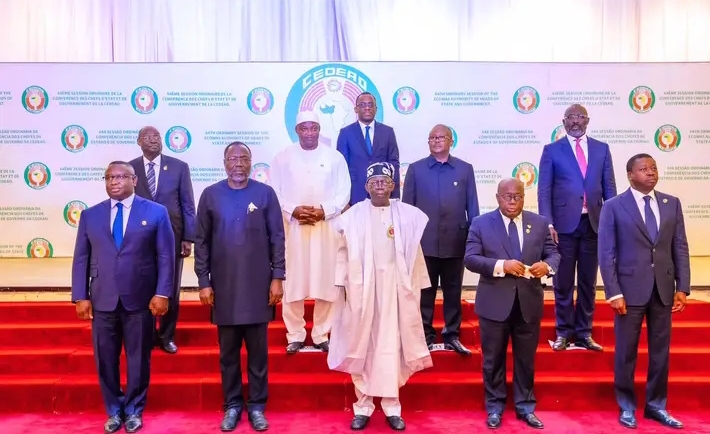
The Nation: What do you say to millions of Nigerians battling a cost-of-living crisis caused by spiralling inflation, high petrol price, and currency devaluation, and desperately want some relief?
Tinubu: As your President, I am deeply aware of the economic crisis’s severe impact on Nigerians, and we are part of a global challenge with the rising costs of living. To help our people, my administra:on is taking proactive steps. We are focused on providing financial support to businesses and ensuring the availability and affordability of staple foods, which are essen:al for every Nigerian family. One of our key initiatives is the provision of N25,000 monthly to 15 million households, for a three-month period. To further support food security, we’re working with our partners, local and interna:onal, to improve agricultural prac:ces and provide essential resources to farmers.
In addition, the National Single Window Project is being implemented to enhance international trade efficiency. All these efforts are in line with our commitment to reducing the economic burden on our ci:zens, especially the working class and vulnerable groups. The realloca:on of funds from the removal of the petrol subsidy is also a strategic move to bolster our government’s finances, contribu:ng to a stable economic environment for all.
Furthermore, in our commitment to ease the economic strain on our citizens , particularly the working class and vulnerable groups, our administration is championing the shift to cleaner energy sources. We recognize the benefits of Compressed Natural Gas (CNG) in providing an affordable and cleaner mass transit system. To facilitate this, we have waived the Value Added Tax (VAT) on CNG purchases. Additionally, to reduce the costs in food transportation and manufacturing, we’ve also waived VAT on diesel for six months.
I fully appreciate that these massively important reforms have been hard, but the dividends are already manifesting, with even more in sight. We have already seen improvements in our economic outlook, as corroborated by the likes of Fitch and Moody’s. These may seem ‘academic’ to many but the impact on investor confidence is significant.
The Nation: Many have criticized the cash transfer initiatives of your government, saying they are superficial and cannot address the level of poverty in the land. Are you still convinced about the efficacy of these programs?
Tinubu: I am steadfast in my belief in the efficacy of our cash transfer initiatives. These initiatives are a crucial part of our strategy to target and provide relief to the most vulnerable segments of our popula:on, especially during the last three months of the year when the prices of basic items typically rise. This is not just about providing temporary support; it’s about strategically delivering assistance when it’s needed most. We continue to work closely with all key stakeholders – including state governments, civil society groups, international partners, and private sector entities like telcos and fintechs – to refine these programs. Moreover, we urge all Nigerians to be mindful of the current economic situation and avoid exploiting it for abnormal profits.
In addition to these cash transfers, our administration is deeply committed to empowering micro, small, and medium-sized enterprises, along with nano businesses. Significant financial support is being directed to these enterprises to foster human capital development, economic growth, and financial inclusion. For instance, through the Ministry of Communications, Innovation and Digital Economy, we launched the 3MTT programme, aiming to develop technical talent across Nigeria in fields such as software engineering and cloud computing. This program is designed not just to aid businesses but also to enable our youth to participate in the global gig economy, earning competitive wages while contributing to our nation’s growth.
Our interventions extend beyond what some may call ‘cash handouts’. They are about creating a sustainable environment where Nigerians can innovate and thrive. By focusing on sectors like digital and creative industries, we are fostering growth and job creation , harmonizing efforts between monetary and fiscal bodies to build a stronger, more resilient Nigeria.”
The Nation: You have been quoted in the past promising to pay Nigerians a minimum wage they can live on. What is delaying the unveiling of the new minimum wage? How do you manage a situation where many states without the Federal Government’s resources may not be able to meet whatever commitments the government at the centre makes [it] to workers?
Tinubu : I understand the concerns regarding the unveiling of the new minimum wage and how states will manage these changes, especially those with fewer resources. To address this, my administration has approved a provisional increase in the federal minimum wage to N35,000 per month for a six-month period, two months of which have already been paid. This decision follows extensive consultations with the Nigeria Labour Congress (NLC) and Trade Union Congress (TUC).
In managing the situation with the states, we are working closely with them to ensure the new wage structure is practical and sustainable. It’s important that each state’s unique financial situation is considered. We are focused on strategies to help states strengthen their economies, considering factors like tax efficiency and economic diversificaon.
We are commided to ongoing dialogues with labour unions and state governments. This collaborative approach is crucial to ensure that the new minimum wage is fair, reasonable, and implementable across all states. Our goal is to balance the economic well-being of our workers with the overall financial health of the nation.
We ask Nigerians to be rest assured that our administration will not rest until we have delivered a sustainable solution in the best interest of Nigerians.
The Nation: One feature of the last few months has been your aggressive pursuit of foreign direct investment. What are the tangible results of these shuttles around the world?
Tinubu: It is essential to place our initiatives within the broader context of our economic recovery and growth strategy. This strategy encompasses several key reforms, including the removal of fuel subsidies, the unification of the naira’s exchange rates, the adoption of the customs single-window, the streamlining of our tax system and enhancement and diversification of our revenues. These strategic moves are designed to enhance liquidity and create a more attractive investment environment for both domestic and foreign investors, thereby stimulating sustainable growth.
FDI is not ‘chicken change’. FDI is substantial, long-term financial commitments made by serious enterprises and investors. What is happening right now is that Nigeria is re-engaging with the global market – both foreign and domestic investors. We are telling the story of our significant and far-reaching reforms and rebuilding confidence in Nigeria as an accessible and safe investment. We are clearly communicating that ‘Nigeria is open for business’ and that the direction of travel is clear and fully committed.
So far, our pursuit of foreign direct investment has been met with positive outcomes. We’ve secured a $500 million deal with Germany to fund renewable energy projects, particularly in rural Nigeria. Additionally, through local enterprises, Nigeria will supply LNG yearly to Germany, starting in 2026, solidifying our role as a key global energy partner. Our focused efforts to adract European FDI are yielding fruit, notably with the $116 million French investment in the I-DICE program, aimed at creating 65,000 start-ups and 150,000 jobs, particularly empowering women. As announced on the sidelines of COP28 in Dubai, we’re deploying 100 electric buses nationally, affirming our commitment to sustainable, eco- friendly initiatives and creating a platform for Public-Private-Partnerships in the mass transit category. Since this announcement we have received serious requests for co-investment opportunities from within Nigeria and across the world – Europe, India, China and the Middle East, key global markets which our administration has been energetically engaging with.
news
Update : Seyi Tinubu Responds to King Mitchy, VeryDarkMan Saga
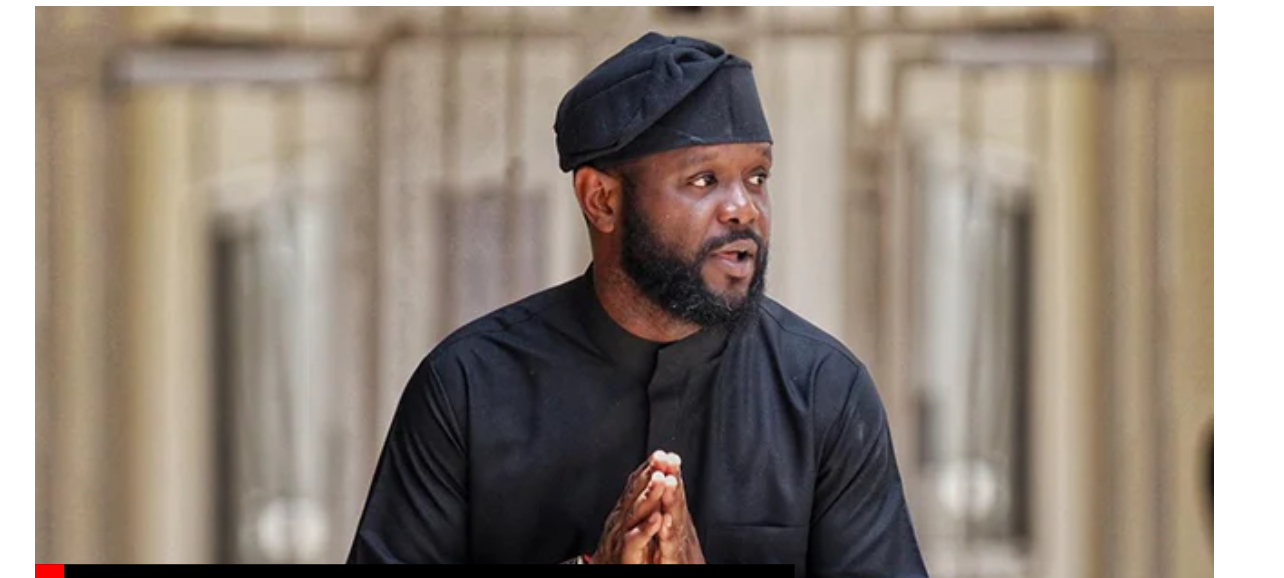
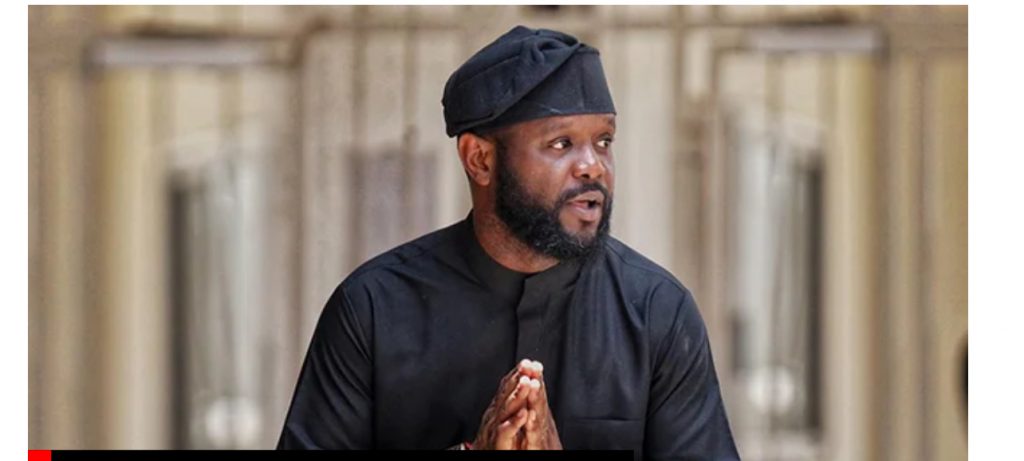
Seyi Tinubu, son of President Bola Tinubu, has issued a statement debunking allegations linking him to a feud between social media personalities Martins Vincent Otse, popularly called VeryDarkMan, and Mitchell Mukoro, widely known as King Mitchy.
The controversy stems from claims suggesting an improper relationship or secret arrangements between Seyi Tinubu and King Mitchy, which VeryDarkMan has reportedly used to intensify his online narrative.
Our correspondence reports that philanthropist and content creator King Mitchy recently announced that she renovated a dilapidated school in six days, suggesting that the project was proof that meaningful change could happen swiftly when there was genuine intent.
However, she reportedly made comments widely interpreted as subtle jabs at VeryDarkMan, who, in turn, accused her of being used as a political pawn to launder the image of President Bola Tinubu’s administration.
Tagging the President’s son. VeryDarkMan was said to have alleged in another video that both Seyi Tinubu and King Mitchy were threatening his life.
Addressing the comments in a statement shared on Instagram on Saturday, Seyi Tinubu categorised the allegations and insinuations as false.
He clarified the nature of his interaction with King Mitchy, framing it strictly within the bounds of his long-standing philanthropic work.
Tinubu wrote, “I met Mitchy once, in a public setting, alongside others. On that occasion, I provided financial support toward her NGO activities, just as I have supported many young Nigerians and organisations working to empower our people.
“A follow-up meeting had been scheduled for me to receive an update on the impact of her NGO’s work following the donation. That meeting did not take place because I have been unwell.”
He categorically denied any private encounters, saying, “There has never been a private encounter, no secret arrangement, and no impropriety of any kind.”
Tinubu took direct aim at VeryDarkMan, accusing the activist of using a feud he had no part in to attack his reputation.
He wrote, “What is deeply concerning is that a feud I did not start, and in which I have played no part, has been used as a vehicle to insert my name into a narrative without basis in truth.
“For reasons best known to him, VDM appears to have been looking for a trigger, an opportunity to attack and attempt to harm my reputation and seized upon this situation to do so. I will not accept that.
“If my name generates attention, let us at least deal in facts. Supporting charitable causes is not a crime. Meeting someone publicly to support their NGO is not a scandal. Repeating falsehoods loudly does not transform them into truth.”
Tinubu asserted that he won’t be intimidated by “fictional” narratives, emphasising that he refuses to be bullied.
“I will not be bullied, and I will not dignify fiction with panic.
“I have experienced bullying before, and I understand the harm it can cause. That is why I take a firm stance against it,” he said.
Tinubu concluded by reaffirming his commitment to serving Nigerian youth through his foundation, insisting that “philanthropy and outreach must never be politicised or weaponised.”
“To those seeking to manufacture controversy: Nigeria needs builders, not bullies. We need responsible discourse, not sensationalism driven by speculation.
“I firmly reject the accusations made against me. I call for de-escalation, for restraint, and for a return to truth and responsibility,” he added.
news
Security Reform: Tinubu Calls for Urgent Constitutional Backing for State Police
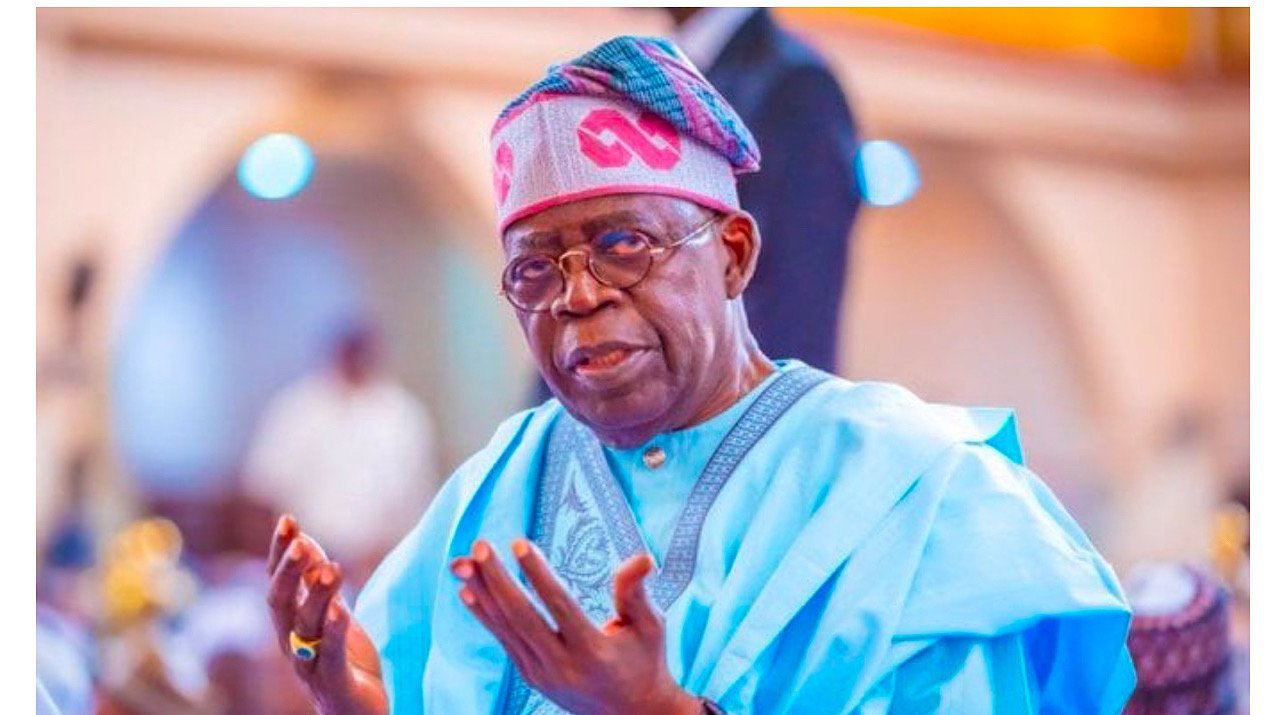

…raises fresh alarm over terrorism, banditry at State House Iftar
…Akpabio pledges more support, vows no executive bill will die in Senate
President Bola Ahmed Tinubu on Wednesday night formally urged the Senate to begin the process of amending the 1999 Constitution to provide for the establishment of state police, declaring that Nigeria must urgently restructure its security architecture to confront terrorism, banditry and insurgency.
Speaking at an interfaith breaking of fast with the leadership and members of the Senate at the State House, Abuja, the President said the time had come for lawmakers to “start thinking” about embedding state policing in the Constitution to enable governments at subnational levels better secure their territories.
“Nigeria is extremely challenged, we are facing terrorism, banditry, insurgency, but you never failed to make a right response to these calls. What I will ask for tonight is for you to start thinking how best to amend the Constitution to incorporate the state police for us to secure our country, take over our forests from marauders, free our children from fear”, Tinubu said.
The President’s latest appeal adds momentum to a campaign he has sustained since early in his administration.
In February 2024, during an emergency meeting with the 36 state governors at the State House, Tinubu approved the creation of a joint committee of federal and state representatives to explore modalities for establishing state police, insisting that the country must “move aggressively” to improve security of lives and property.
He renewed the call in November 2025, urging the National Assembly to begin reviewing relevant laws to allow states willing to establish their own policing structures to do so.
At the APC National Caucus meeting in December 2025, he again pressed governors and lawmakers to back constitutional reforms for state police and local government autonomy.
Only days ago, at an interfaith breaking of fast with governors at the Presidential Villa, the President declared that state police “can’t wait” and “will not be postponed,” urging preparations for what he described as a necessary shift in the nation’s security architecture.
At Wednesday’s gathering with senators, Tinubu framed the proposed reform as a constitutional obligation anchored on unity and shared responsibility.
“What you have faced in the challenging period of this country, the terrorism and banditry, is causing us havoc and we should pull together, unite in a way that our forefathers contemplated to bring about a constitutional democracy and pull us together. They didn’t say we should fight,” he said.
Beyond security, the President expressed deep appreciation to lawmakers for supporting what he described as bold and necessary economic reforms.
“I have a lot of credit for bold reforms. Without your collaborations, without your inspirations, those reforms are not possible. We are reformists together,” he said.
Tinubu defended the removal of petrol subsidy and foreign exchange reforms, describing them as steps taken to halt “monumental corruption.”
“What we gave up and what we stopped is a monumental corruption in subsidy. We gave it up. We don’t want to participate in monumental corruption, in arbitrage, foreign exchange,” he stated.
‘Amend Constitution to accommodate state police’
State police and questions Nigeria can no longer avoid
Senate backs state police, technology-driven reforms to boost Nigeria’s security
According to him, the reforms have laid the foundation for economic stability.
“You don’t have to chase me for dollars. In the past, you could see what Nigeria is today. You should be proud… What we are enjoying is stable economy, prosperity beckoning on us. We just need to work hard for it,” he added.
Responding to criticisms from political opponents, the President dismissed claims that he was stifling opposition voices.
“When they accused me of killing oppositions, I didn’t have a gun… I can’t blame anybody from jumping out of a sinking ship if they did,” he said, in apparent reference to recent defections.
He described the coincidence of Ramadan and Lent as symbolic of national unity and called for continued harmony between the executive and legislature.
“We are committed to Nigerian entity succeeding. We are committed to make law for the welfare, prosperity of the country. I think we are committed together to govern together,” he said.
In his response, President of the Senate, Senator Godswill Akpabio, assured the President of the chamber’s loyalty and continued cooperation.
“We have nothing to give to you than to assure you of our loyalty,” Akpabio said. “I’m sure you have noticed that nothing you have ever sent to us died in first reading, and it will never happen.”
He said the Senate painstakingly reviews executive proposals to ensure they serve national interest, even when they initially attract criticism.
“We sit down to painstakingly go through everything that comes before us, and then at the end, we see that it is in the interest of Nigerians, even when the social media is not seeing it,” he said.
Akpabio commended Tinubu’s tax reforms, foreign exchange unification, fuel subsidy removal and the recent electoral amendment, noting that the President promptly assented to the revised Electoral Act when convinced it served national interest.
He expressed optimism that by 2031, Nigeria would be more prosperous under Tinubu’s leadership and offered prayers for peace amid what he described as “troubles and sponsored insecurity” in parts of the country.
The Senate President also thanked Tinubu for appointing former Senator Jimoh Ibrahim as an ambassador, describing it as recognition of legislative talent.
The interfaith gathering ended with prayers for unity, wisdom and strength for the nation’s leaders as they navigate security and economic challenges.
news
BREAKING: Tinubu Names Tunji Disu Acting Inspector General After Egbetokun’s Exit

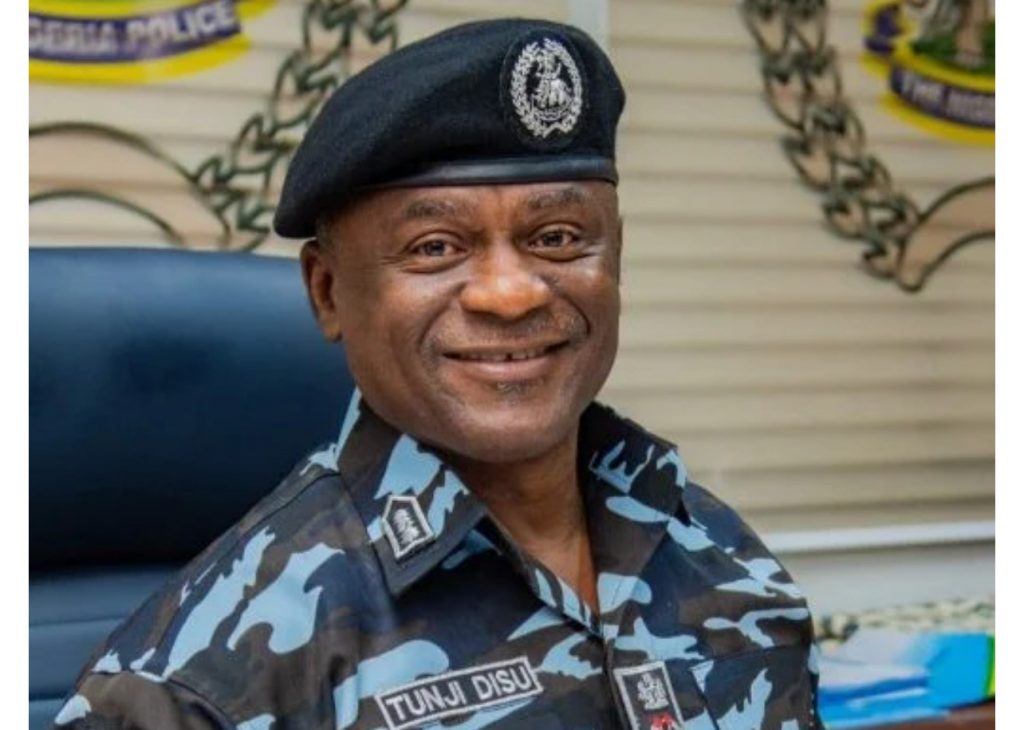
President Bola Tinubu has accepted the resignation of the Inspector-General of Police, Kayode Egbetokun, and approved the appointment of Tunji Disu as Acting Inspector-General of Police with immediate effect.
Our correspondent had earlier reported that Egbetokun tendered his resignation letter on Tuesday, citing pressing family considerations.
Appointed in June 2023, Egbetokun was serving a four-year term scheduled to conclude in June 2027, in line with the amended provisions of the Police Act.
In a statement issued on Tuesday by his Special Adviser on Information and Strategy, Bayo Onanuga, the President received the letter earlier on Tuesday and expressed appreciation for his service to the nation.
He also commended Egbetokun’s “decades of distinguished service to the Nigeria Police Force and the nation,” acknowledging his “dedication, professionalism, and steadfast commitment to strengthening internal security architecture during his tenure.”
“In view of the current security challenges confronting the nation, and acting in accordance with extant laws and legal guidance, President Tinubu has approved the appointment of Assistant Inspector-General of Police Tunji Disu to serve as Acting Inspector-General of Police with immediate effect.
“The President is confident that AIG Disu’s experience, operational depth, and demonstrated leadership capacity will provide steady and focused direction for the Nigeria Police Force during this critical period,” the statement read.
It added that in compliance with the provisions of the Police Act 2020, the President will soon convene a meeting of the Nigeria Police Council to formally consider Disu’s appointment as substantive Inspector-General of Police, after which his name will be forwarded to the Senate for confirmation.
The President reaffirmed his administration’s commitment to enhancing national security, strengthening institutional capacity, and ensuring that the Nigeria Police Force remains professional, accountable, and fully equipped to discharge its constitutional responsibilities.
-

 news5 years ago
news5 years agoUPDATE: #ENDSARS: CCTV footage of Lekki shootings intact – Says Sanwo – Olu
-

 lifestyle6 years ago
lifestyle6 years agoFormer Miss World: Mixed reactions trail Agbani Darego’s looks
-

 health5 years ago
health5 years agoChairman Agege LG, Ganiyu Egunjobi Receives Covid-19 Vaccines
-

 lifestyle4 years ago
lifestyle4 years agoObateru: Celebrating a Quintessential PR Man at 60
-

 health6 years ago
health6 years agoUPDATE : Nigeria Records 790 new cases of COVID-19
-

 health6 years ago
health6 years agoBREAKING: Nigeria confirms 663 new cases of COVID-19
-

 entertainment1 year ago
entertainment1 year agoAshny Set for Valentine Special and new Album ‘ Femme Fatale’
-

 news9 months ago
news9 months agoBREAKING: Tinubu swears in new NNPCL Board


